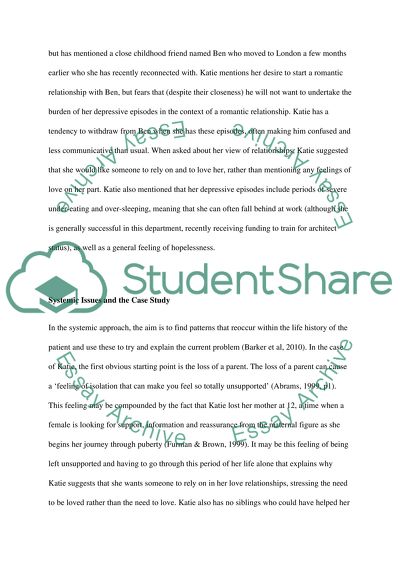Cite this document
(“Consider Systemic Issues in a Counselling Case Study Essay - 1”, n.d.)
Retrieved from https://studentshare.org/psychology/1431442-consider-systemic-issues-in-a-counselling-case-study
Retrieved from https://studentshare.org/psychology/1431442-consider-systemic-issues-in-a-counselling-case-study
(Consider Systemic Issues in a Counselling Case Study Essay - 1)
https://studentshare.org/psychology/1431442-consider-systemic-issues-in-a-counselling-case-study.
https://studentshare.org/psychology/1431442-consider-systemic-issues-in-a-counselling-case-study.
“Consider Systemic Issues in a Counselling Case Study Essay - 1”, n.d. https://studentshare.org/psychology/1431442-consider-systemic-issues-in-a-counselling-case-study.


